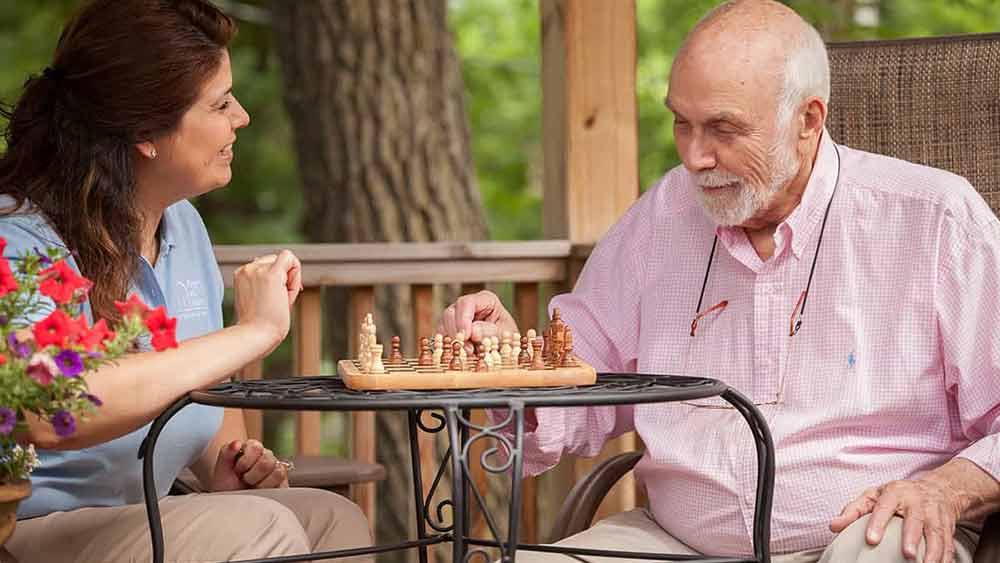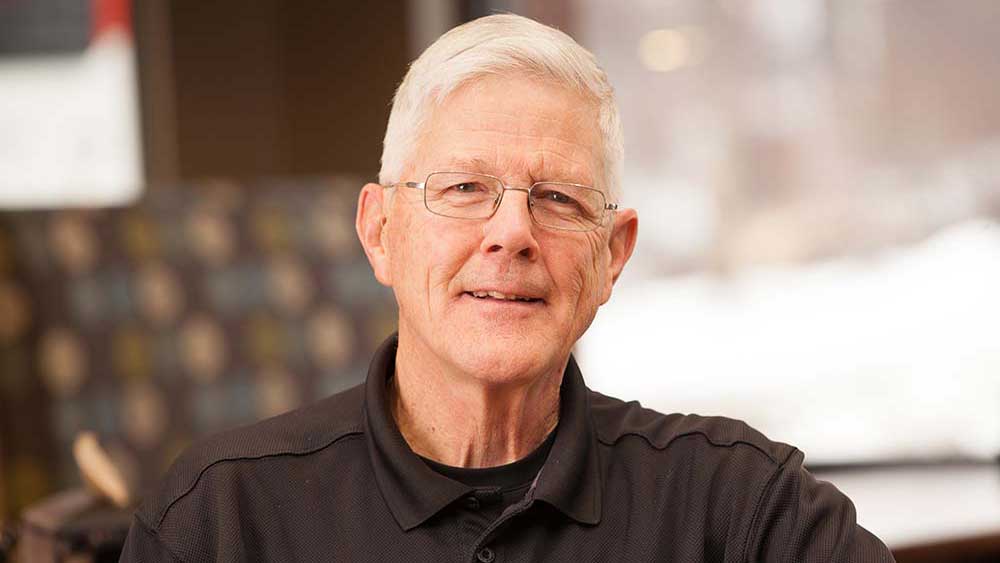

Top 10 Myths About Your Risk for Alzheimer’s Disease
Polls show that when it comes to worrying about old age, memory loss is right on top of the list for most people—even above worries about money. “I don’t care what happens, so long as I stay sharp,” we hear people say.
But worrying doesn’t help us. It might even raise our stress level, and stress is bad for the brain. Instead, we should learn about our risk factors for dementia and know which ones we can do something about. Because there is so much misinformation out there, let’s begin by dispelling some common myths.
Myth #1: If I live to be old enough, I will probably develop Alzheimer's disease.
Fact: Granted, there are more cases of dementia today because people are living longer, and the risk rises with age. However, dementia is not by any means inevitable as we grow older. When University of Michigan experts polled people in their 50s and early 60s, they found that half of the respondents thought they were likely to develop serious memory and cognitive loss as they aged. Yet in fact, only 20% of older adults will deal with dementia.
Myth #2: If I have a genetic risk for Alzheimer’s disease, that means I will get the disease—there’s nothing I can do about it.
Fact: A higher risk of dementia does run in some families. But at the July 2019 Alzheimer’s Association International Conference, researchers presented data showing that for the most part, even people with a higher genetic risk of Alzheimer’s disease can lower their risk by adopting brain-healthy lifestyle choices. Said the researchers, “Two studies showed that actionable lifestyle changes could potentially counteract elevated risk … participants with a high genetic risk for Alzheimer’s following a favorable lifestyle had a 32% lower risk for Alzheimer’s and other dementias.” A good example can be found in a December 2019 study from the University of Toronto on identical triplets, two of whom had dementia, while the third did not!
Myth #3: If I have plaques and tangles in my brain, I will soon experience the symptoms of Alzheimer's disease.
Fact: Not so long ago, an autopsy was the only way to know if a person had the characteristic amyloid plaques and tangles of tau protein that are associated with Alzheimer’s disease. The catch was, pathologists seldom examined the brain unless the deceased person had the symptoms of Alzheimer's while alive. But today, PET scans and other brain imaging show that some people have those plaques and tangles in their brains, and yet display no obvious outward signs of the disease. The human brain can be very resilient, forming “backup” connections that work around the affected brain cells.
Myth #4: I need specifically designed “brain games” to get the kind of mental exercise that protects against dementia.
Fact: Ever since neurologists began promoting the “your brain: use it or lose it” message, companies have rushed to create computer games, puzzles and other brain-training products. These products can be useful, but they don’t provide a greater benefit than many other activities that challenge the mind. Reading, learning a language, playing video games, taking an art class, traveling, and working at a stimulating job are just a few ways to help our brains build valuable new connections. Experts say learning something new is especially beneficial.
Myth #5: Solitary brain exercise is all I need.
Fact: Challenging our minds with intense mental focus is great. But interacting with other people is even more beneficial. Many studies have shown that socialization provides an important type of brain stimulation. Most recently, an August 2019 study from University College London, spanning decades in the lives of 10,228 people, consistently found a lower incidence of dementia among those who were socially engaged. Yes, staying connected with others can take a lot of effort in these days of social distancing, but finding alternate ways to socialize helps us avoid the “epidemic” of loneliness experts are warning us about.
Myth #6: It’s OK to skip my exercise routine today, as long as I get some mental exercise.
Fact: A February 2020 study from Florida Atlantic University found that people with a higher genetic risk of dementia did better if their neighborhood offered parks, sidewalks and shops that promote walking about. Yes, brain stimulation is vital—but exercising our muscles is just as important for brain health. They work together. University of Arizona anthropologists say the impressive brains of our species evolved because of our ancestors’ hunting and foraging lifestyle. These activities, explains anthropologist David Raichlen, are “incredibly complex cognitive behavior.” His description sounds rather like a modern active video game. Says Raichlen, “You’re moving on a landscape, you’re using memory not only to know where to go but also to navigate your way back, and you’re paying attention to your surroundings. You’re multitasking the entire time because you’re making decisions while you’re paying attention to the environment, while you are also monitoring your motor systems over complex terrain.”
Myth #7: Aerobic exercise is the only type that benefits our brain.
Fact: It’s understandable people would think this. A healthy heart promotes a healthy brain, and exercise that raises our heart rate strengthens the heart. But, in fact, muscle strengthening activities also are important. Lifting weights, doing squats and knee bends, and working with resistance bands all have been found to give our memories a boost, sometimes even reversing memory loss. Building muscle makes us healthier all around. It also increases several beneficial chemicals in the brain.
Myth #8: Taking supplements can protect brain health.
Fact: Alzheimer’s Association experts recommend eating a diet that includes lots of fruits, veggies and grains; fish and poultry; and healthy fats such as olive oil. But should we also take supplements? Magazines, TV shows and, of course, the internet are overrun with ads for vitamins, herbs and other “brain-health” substances. The sellers of these supplements claim their products can prevent or even cure memory loss. It’s a multibillion-dollar industry—but, say most experts, don’t waste your money. The World Health Organization recently noted that no reputable studies confirm the value of these products. Talk to your doctor about a healthy diet instead.
Myth #9: Drinking alcohol can protect my brain.
Fact: A few years ago, a set of studies associated moderate drinking, particularly red wine, with brain health. Many of us drank a toast to that! However, experts aren’t in agreement about the benefits—but they do unanimously agree that drinking too much is very harmful for the brain. Heavy drinking causes brain shrinkage, and a study published in the Lancet Public Health Journal even stated that “alcohol disorders are the most important preventable risk factors for all types of dementia.” Talk to your doctor about the amount of alcohol that is safe for you.
Myth #10: Alzheimer’s disease is unrelated to other health conditions.
Fact: Many common diseases and conditions can harm our brains. Diabetes, high blood pressure, high cholesterol, depression, stress, sleep problems, hearing and vision loss, and even gum disease can raise the risk of Alzheimer’s. So think of regular healthcare as a “two for one.” Managing those conditions also can lower our risk of memory loss, or slow the progression if we’re already experiencing some changes. Keeping regular medical appointments, taking medications as directed and following our doctor’s recommendations all can help us preserve brain health.
Right at Home Provides Care Services for Those With Dementia
If you are supporting a loved one with Alzheimer’s disease or other type of dementia, or would simply like more information about the condition, Right at Home is here to assist. We provide specialized nonmedical home care for those with cognitive change. Check out our Alzheimer’s, Dementia and Cognitive Change Services webpage for information, including our free download, “A Guide for Those Supporting Loved Ones With Dementia or Cognitive Change.”
Latest Resources for Seniors
Featured article








